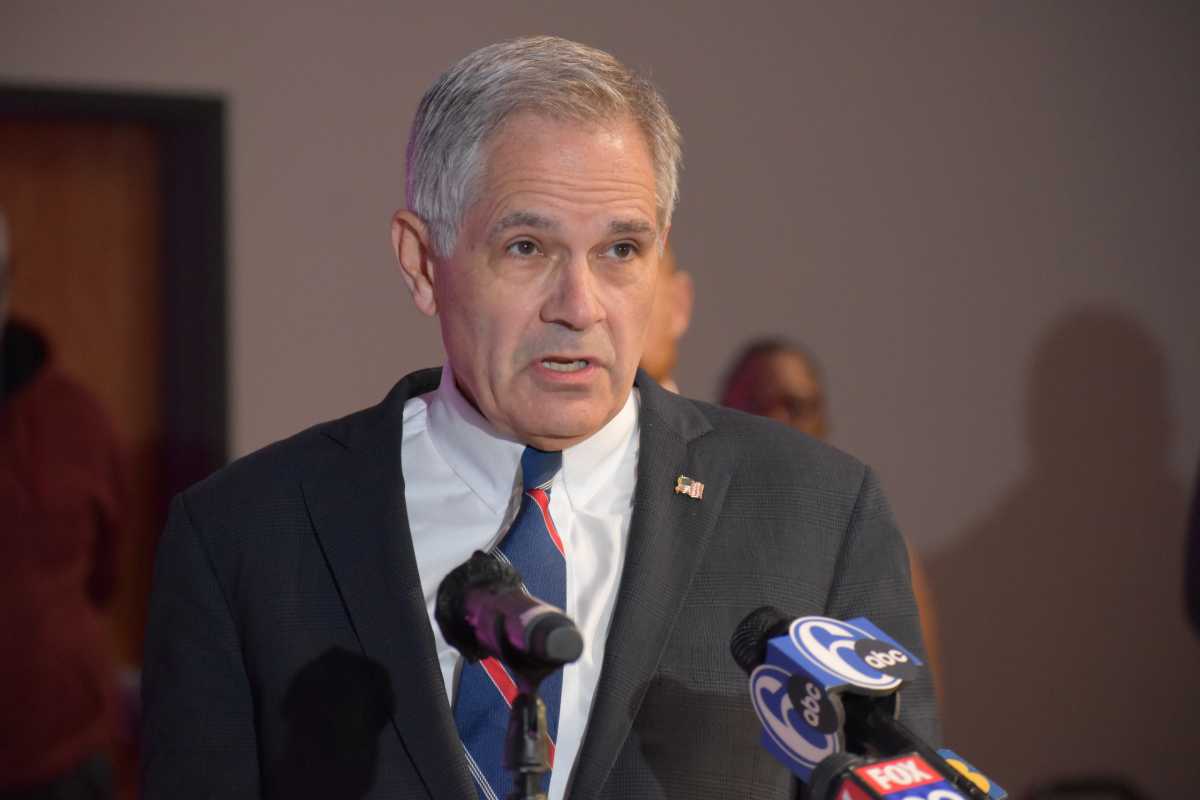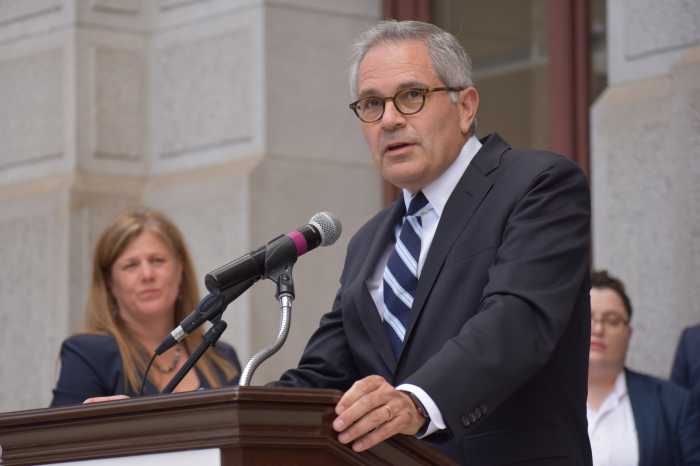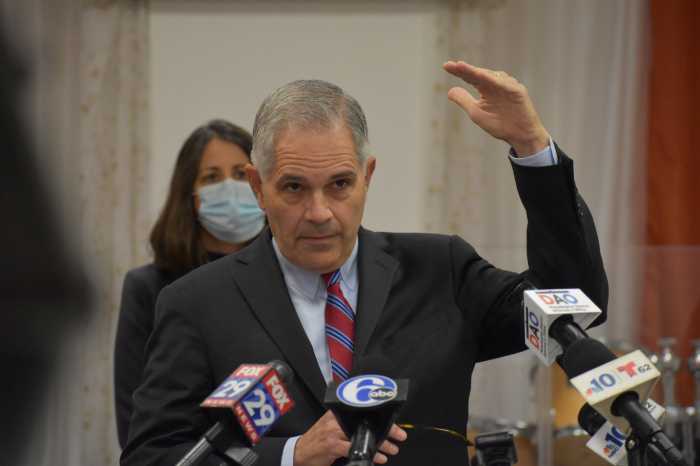District Attorney Larry Krasner, less than a month before the scheduled start of his impeachment trial, laid out his expected defense Wednesday in a formal answer to the charges crafted by the GOP-led Pennsylvania House of Representatives.
Attorneys for Krasner wrote that the lawmakers who decided to impeach him took “an unserious, unconstitutional, and anti-democratic approach: impeachment of a democratically elected official for his ideas and policies.”
At the same time as preparations begin for the trial, Krasner and Republican state Senate leaders are sparring in the courts. Earlier this month, Krasner asked the Commonwealth Court to kill the impeachment effort.
In both venues, Krasner’s legal team has argued that the charges filed against him expired Nov. 30 – the end of the most recent legislative session – and that the House has no authority to impeach local elected officials.
Senate Republicans and their counsel have refuted those arguments and have said the courts should toss Krasner’s challenge because his lawsuit is inappropriately timed.
An oral argument in Commonwealth Court is scheduled for next Thursday, and, while the judges have expedited the process, it is not clear whether they will issue a ruling before Jan. 18, when the trial is set to begin in Harrisburg.
The GOP House members who spearheaded the impeachment accused Krasner of “misbehavior in office,” citing a provision in the state’s constitution that they believe grants a broad definition to the term.
Krasner, in Wednesday’s 22-page filing, said lawmakers have made no case accusing him of wrongdoing; instead, the charges focus on ideological disagreements, his attorneys said, which should be handled at the ballot box.
Voters have chosen to elect Krasner twice – most recently last year, when he handily defeated primary and general election opponents who attempted to paint him as “soft on crime.”
An overarching theme in the articles of impeachment is that Krasner’s progressive policies have led to skyrocketing violence in Philadelphia.
Increasing rates of homicides and shootings, Krasner’s team argued, have been driven “by decades of divestment, a deadly pandemic that devastated the economy and normal enforcement initiatives and prevention of crime, and an unprecedented rise in firearm purchases.”
Krasner’s lawyers note that homicide numbers spiked across the country in 2021 and 2022, including in other Pennsylvania cities.
“District Attorney Krasner’s oath defines his duty,” they wrote. “That oath is to seek justice and uphold the constitutions and laws. He has done so faithfully, and exercised his discretion precisely for that purpose.”
In response to the seven articles of impeachment, Krasner also pointed to a number of alleged technical flaws, including accusations concerning other employees of the District Attorney’s Office and combining multiple incidents into a single charge.
The articles cite three cases in which the DAO allegedly acted inappropriately. Such conduct is governed exclusively by the Pennsylvania Supreme Court, Krasner’s response argues.
Other counts, accusing the DAO of not supporting victims or enforcing certain laws, are too vague, his team writes.
Krasner was impeached in a party-line vote Nov. 16 after the House established a committee to investigate the DAO and crime in Philadelphia.
Two weeks later, Senators gathered at the state Capitol to adopt rules for his trial, which GOP officials said were based on Congressional processes and Pennsylvania’s last impeachment, in 1994.
For Krasner to be removed from office, a two-thirds majority must vote in favor of conviction on at least one charge. When the Senate returns to session in January, Republicans will hold a 28-22 advantage.
Three representatives – Republicans Craig Williams and Tim Bonner, and Democrat Jared Solomon – were appointed as impeachment managers.






























